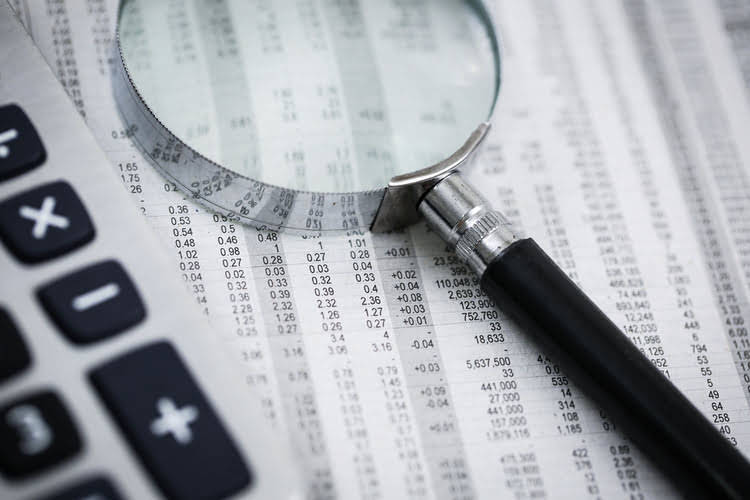
Learn how to prepare financial statements, audit documents and apply accounting math to solve complex problems in the online Bachelor of Science in Accounting program at Hilbert College Global. This process may require accountants to have some math knowledge. Understanding and complying with regulatory standards is highly crucial for companies. It falls under financial accounting and, thus, concerns financial accountants. While math knowledge is critical, most accounting software takes care of it. In modern accounting practices, therefore, accountants can take math as optional.
- All posts and comments should be directly related to mathematics, including topics related to the practice, profession and community of mathematics.
- The notion that an accountant needs to be some sort of mathematics genius is completely false.
- To help you get started, the ACCA Student Virtual Learning Centre offers a range of free maths practice resources – available to anyone as soon as you register, even if you’re not yet a student.
- The simplicity of the double-entry accounting concept provides a sturdy framework for the many accounting rules and conventions.
- Despite what the common perceptions are of maths, most mathematicians will think of their field as more of an art than a science.
Do I Have to be Good at Math to Get an Accounting Degree?
- In some circumstances, candidates must also understand some complex mathematical concepts.
- The answer to this question may vary depending on individual perceptions and experiences, but it’s essential to understand the role of mathematics in accounting.
- Companies then transferred the collective amounts for those areas to the general ledger.
- The rudimentary level of entry is becoming an accountant or bookkeeper.
- For most accountants, the knowledge of financial jargon is crucial in helping them survive in the field.
They also Accounts Receivable Outsourcing overlook other areas that are crucial to a company’s performance. Apart from accounting standards, financial accounting may also concern following regulatory standards. These standards usually come from the jurisdiction in which a company operates. In most cases, it relates to the market where a company offers its services. While mathematics is an optional skill for accountants, several more important ones also exist.

Must-Have Skills for a Successful Accounting Career
A fundamental understanding of mathematical concepts is still essential in accounting. Accountants need to be proficient in basic arithmetic, algebra, and statistics to analyze financial data, prepare reports, and ensure accuracy in their work. They may also use mathematical principles to perform tasks such as budgeting, forecasting, and financial analysis. Much like virtually every other professional field, accounting has come to rely on computers. While they do not need to be payroll computer whizzes, accountants need to be prepared to use basic office software to complete daily tasks and communicate with coworkers, managers and clients. They should be especially proficient with the various programs and information technology tools used to accomplish typical accounting tasks.
Is accounting course hard?

Similarly, these transactions also have a monetary value attached to them. Once incurred, companies must record them in their financial systems. It do you have to be good at math for accounting is the first step involved in the financial accounting process. Strong math and analytical skills are a must for accountants — you’ve got those already. Accountants spend much of their time solving problems where they combine quantitative analysis with business strategy, legal perspectives and economic considerations. How much math is involved and would it be on the spot/in front of customers?
I can use a calculator very well and can understand and apply math equations in Excel. But otherwise I have a hard time and still rely on my fingers to do simple addition/subtraction. Research has also shown that 47% of ASX 200-listed CEOs come from an accounting and financial services background. So if you’ve got your sights set on the top job, then working in accounts could be the first step towards achieving that goal. A big part of many accounting roles is preparing financial reports and communicating with colleagues and clients.
- So, no matter your background or mathematical ability, accounting is definitely worth considering as a real option.
- With this knowledge, accountants can enhance the service provided in all critical areas.
- And while math is one way to work on your quantitative skills, you may find that courses in logic, economics or physics may be just as important.
- Factors such as economic growth, globalization and the complexity of tax law drive a need for accountants and auditors.
- He is not too talented in math or sciences, and even his parents admit that they don’t think she will be a doctor or a science researcher.
- Yes, you do need to be good at basic math to be an accountant.
of the Best Finance Books That Help You Understand Money

Many other accountants also use their statistics skills on a daily basis, whether to identify trends, forecast earnings or assess risk. Statistical skills help accountants work efficiently and accurately. Therefore, financial accounts must be proficient in the use of the software. With standards knowledge, this proficiency can help them achieve significantly better results. Most of the work done in financial accounting concerns using accounting standards. However, students can also obtain a license or membership from a professional accounting body.
- While both accounting and maths rely on numbers, equations and certain problems that must be solved, the approaches to both subjects could not be more different.
- However, some candidates may hesitate before choosing it due to its connection with numbers.
- As a result, the BLS projects over 125,000 accounting job openings annually from 2022 to 2032.
- While math majors might explore number theory and logic, accountants typically draw on applied math principles.

If you don’t like numbers then you should proceed with caution before getting into accounting. Another resource you have in practice if you feel that you are in over your head is asking a friend. Did you know that Australia’s financial sector creates the most revenue in Australia above all other industries? The revenue for 2020 was calculated at $195.6 billion for the financial sector.
Basic maths skills required for accounting
Computer skills and an ability to analyze and manage data may be equally or more important, depending on what kind of job you pursue. Factors such as economic growth, globalization and the complexity of tax law drive a need for accountants and auditors. As a result, the BLS projects over 125,000 accounting job openings annually from 2022 to 2032. The mathematical subfield of financial mathematics uses math to solve financial problems.